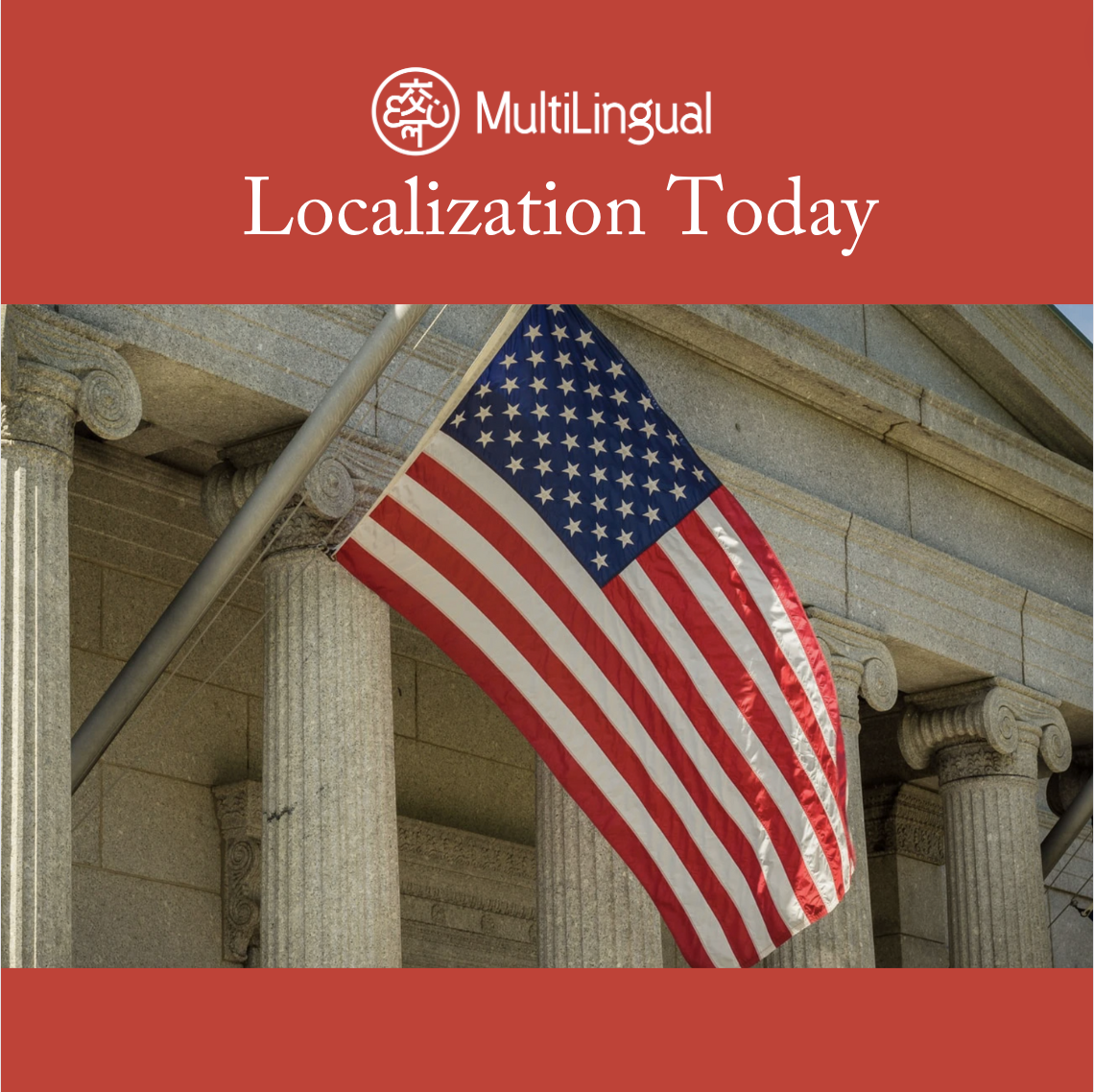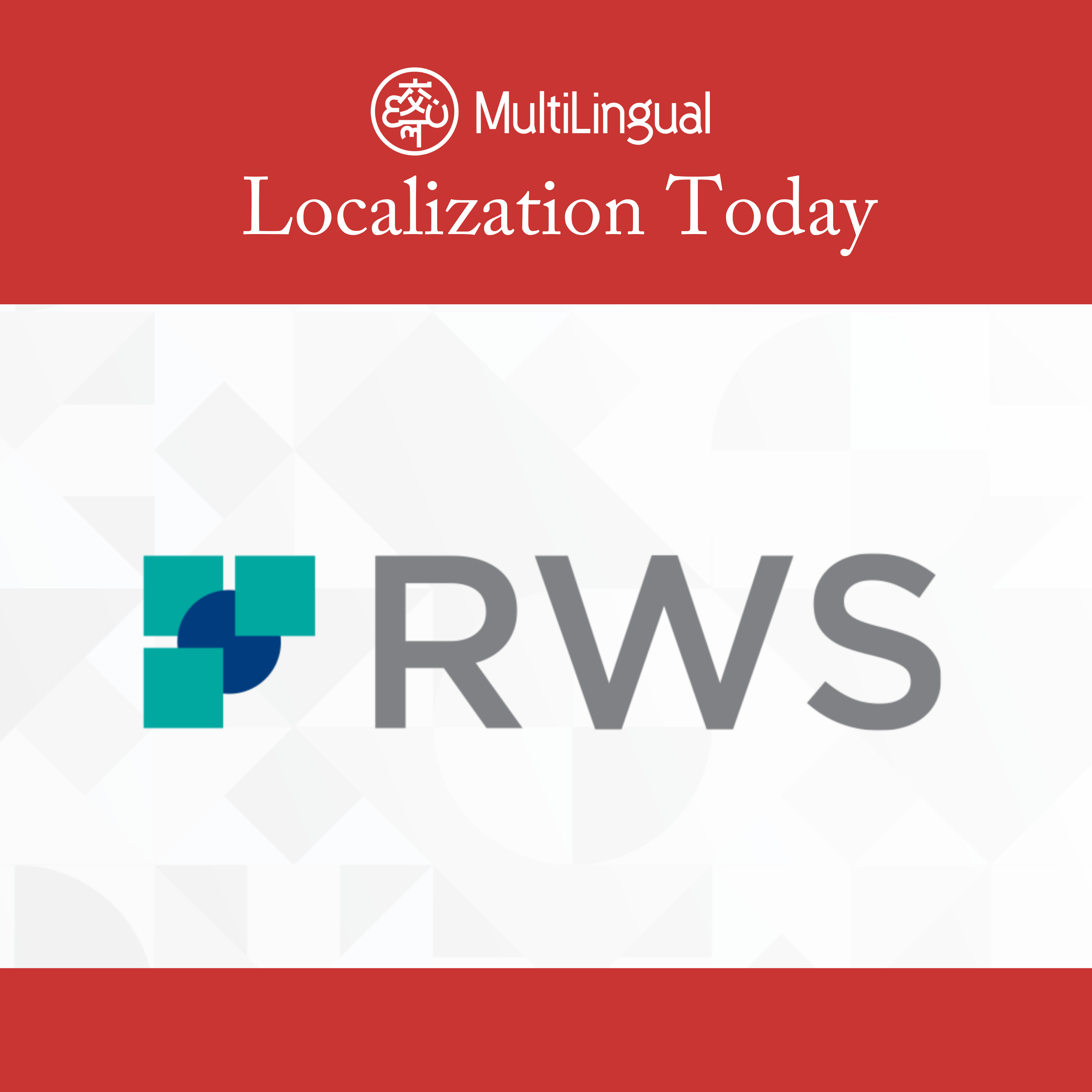Episode Transcript
[00:00:00] Speaker A: Language Rights as Human Rights Perspectives on the Fight for Global Language justice by Mimi Moore the Global Coalition for Language Rights is making a powerful impact through its dedication to language rights and advocacy worldwide. GCLR grew from conversations among language professionals and enthusiasts during the pandemic who sought to address urgent issues of language justice and access.
A cornerstone of their efforts is Global Language Advocacy Days, glaad, an annual event featuring webinars, workshops, panel discussions, film screenings, podcast episodes, blog posts, and more.
This year, GLAAD will take place February 21 to 28 and gather voices from around the world to celebrate language diversity and promote linguistic justice. For GLAAD organizers Juliana Chavez Almeida, Avishta Siras, and Sophia Tsialai, the event is a platform to change attitudes and beliefs about language rights, amplify the experiences of underrepresented communities, and build global support for linguistic inclusion. They spoke with multilingual about their dedication to creating a world where language is valued as a fundamental human right central to identity, community, and access to essential services.
Why is the GLAAD event important?
[00:01:21] Speaker B: Juliana we should fight for language rights every day, but it's also important to reserve a time to share the message and educate more people. GLAAD is an opportunity for language rights supporters to take the subject of language rights out of the bubble. There are so many people whose linguistic rights are being disrespected. GLAAD welcomes anyone who sympathizes with these issues. Whether they are considering becoming an advocate or just want to learn more about culture and language, every individual and community counts.
[00:01:52] Speaker C: Sophia GLAAD shows the impact of those who advocate for language rights and teaches attendees about languages they might not have previously encountered. The event helps supporters to discover new methods for promoting, raising awareness of, and defending language rights. Through these activities, this community builds a network that strengthens the advocacy of language rights.
[00:02:14] Speaker D: Avishta GLAAD is a crucial event for those working in language rights, justice, access, education, preservation, and revitalization. Due to its popularity, GLAAD's length has expanded over the past two years from one day into a week or more. The event emphasizes the importance of mother tongue use, language diversity, and the right to access information and services in one's own language.
It highlights research and advocacy initiatives, fosters connection and collaboration, and draws attention to language rights issues on a global scale. We use this opportunity to educate people on what language rights are and how they can be defended, utilizing resources and tools developed by the gcor.
[00:03:03] Speaker A: What does Language Rights Mean?
[00:03:05] Speaker B: Language rights means that one is able to use their native language wherever and however they want without being discriminated against.
Having language rights means that no one can say that your language is not a real language. Your community should be able to name and define its own language. If this is not the case, then someone took away your language rights.
[00:03:26] Speaker C: Every individual deserves the freedom to express themselves and learn using any language they choose. This includes using any linguistic resources they want from their multilingual backgrounds. Recent research emphasizes that language rights extend to the spaces where people interact daily. For instance, schools should be linguistically and culturally sensitive to all students.
[00:03:47] Speaker D: Imagine being able to speak, write, and understand your language anywhere you go, whether at school, in hospitals, at work, or in government offices. You can see and hear your language in the media, in books, and online so it can be shared with future generations. When you have language rights, you don't need to worry about being treated unfairly because of the language you speak, sign or write. No one should make you feel bad about your language or tell you it is less important than others. You and your community should be able to make decisions about your language, like choosing what to call it without others dismissing it. If these freedoms are restricted, then your language rights have been taken away and you should join other people from around the world who are standing up for their language rights.
[00:04:37] Speaker A: Are language rights different from accessibility?
[00:04:39] Speaker D: Language rights and accessibility both aim to create equal access to services and full participation in society, but they address different needs.
Language rights focus on individuals ability to use and access services in their own language, advocating for language diversity and cultural identity. Accessibility addresses removing physical, technological, or sensory barriers, ensuring people with disabilities can access services and spaces equally.
They intersect in settings like healthcare, where providing both language support and physical accessibility can make services fully inclusive, although distinct. Both share the goal of breaking down barriers that prevent fair participation, advancing a more inclusive and equitable society.
[00:05:29] Speaker B: Language rights are fundamental to guarantee accessibility, especially in the public sector, be it in voting, attending school, or accessing healthcare. It's essential that all individuals understand and feel understood, as communication is the base of all social relations.
Language is the way that one individual can reach and access another individual. Without this bridge, society has a structural problem.
[00:05:54] Speaker C: The violation of language rights is closely connected to accessibility, specifically regarding public services and social institutions. Language rights are vital not only in these contexts, but also in political processes and the overall well being of individuals. Unfortunately, this crucial connection often goes unnoticed. It is essential to recognize language rights as fundamental rights deserving the same level of respect and protection as all other rights.
[00:06:23] Speaker A: So are you saying that language rights are human rights?
[00:06:26] Speaker C: I agree with those advocating for a critical approach to the concept of rights, which are often shaped by a Western centric perspective. Many studies indicate that discussions about rights often start from the assumption that all individuals possess rights, overlooking the reality that many people are deprived of their rights, including their language rights. This leads me to agree with those who question whether we need to rethink the framework of human rights.
[00:06:52] Speaker B: There is a huge debate among scholars regarding this subject, which is still very Western centric. Some say that language rights and human rights are the same, some say that they're not. Some believe that human rights are addressed to each individual, so rights that concern specific groups like language rights or women's rights don't qualify as human rights.
However, some criticize this argument as well known human rights. For example voting rights are not afforded to every person.
Others propose a broader definition for human rights. French professor Diane Roman states in her book Droit des pavers poveres droits that human rights are interdependent and have an impact on one another. For instance, language rights impact education and health rights, so legislating for a group to make up for inequalities will lead to general well being for all humankind. I believe that language rights are human rights. Following Roman's point of view, if people.
[00:07:51] Speaker A: Are unable to participate in or have access to healthcare, education or the legal system because of language, what is the impact on their human rights?
[00:08:00] Speaker C: Linguistic inequalities hinder both adults and children from participating in everyday life and negatively affect their status as global citizens. In fact, a recent Council of Europe directive highlights the importance of multilingualism in fostering democratic citizenship.
Access to healthcare, education and the legal system is vital for a society that respects and protects individuals rights, collective rights, and cultural rights. How can we uphold values such as active community participation, democracy and justice when there is no opportunity for some individuals to express themselves?
[00:08:35] Speaker B: Even though a person's rights exist in theory, it means nothing if they cannot access education, healthcare, or the legal system. For instance, if a citizen from a given country who has the right of healthcare cannot be understood by health professionals, then they cannot access their right to healthcare. The same applies to education, justice, and so on.
[00:08:57] Speaker D: In a democracy, all voices should have an equal opportunity to be heard and understood. When language barriers limit access to healthcare, education or legal representation, they also limit participation in public life. Citizens unable to access information or services in their language are effectively excluded from democratic participation.
This exclusion erodes democratic principles as affected individuals cannot fully exercise their rights or engage in decision making that impacts their lives. When communities are excluded from these processes, it weakens democratic foundations by silencing diverse voices and perspectives.
[00:09:40] Speaker A: So if language impacts human rights, how does language support democracy?
[00:09:45] Speaker B: Language has long been used in the development of modern national states. Speaking only one language was important for creating a common narrative of national identity, which is the necessary cohesion among people belonging to the same country.
Take France and Italy as examples. As a national common language was being expanded, regional languages started to be considered inferior languages or dialects. Far right ideologies who defend a strict and standardized national identity as well as ethnodifferentialism, the idea that cultures should remain pure and separate, are fundamentally against language rights.
[00:10:22] Speaker D: Nationalism and authoritarianism further impact language rights. Nationalistic policies often promote a single language for unity, suppressing language diversity, while authoritarian governments restrict underrepresented languages to control cultural expression. Together, these factors threaten cultural diversity and reinforce social inequalities, limiting full participation in society based on language.
[00:10:50] Speaker A: What happens to people when their language is suppressed?
[00:10:53] Speaker B: When language rights are limited or denied, speakers of an underrepresented language might find it harder to connect to their own identity. And a community may find it harder to connect to its own story and ancestry. This happens because they are not allowed to use and explore their own language freely. Each language is rich and unique and because many individuals depend on a language that is not their own to survive in the social space, creating detachment from their roots and culture, these individuals might find their self expression limited. This is one of the ways a language dies, and when a language dies, its culture dies too, because language is how we express and transmit material and immaterial elements from our culture. Keeping language alive is especially critical for exclusively oral languages because the lack of written documents makes it impossible to restore the language after the last speakers die.
[00:11:46] Speaker C: I can't forget the expressions on children's faces in class or the ease of expression from people involved. In my research when I attempt to use other languages. I believe that when we create space for different forms of expression and recognize the value of different languages, everyone can embrace all aspects of their identities. This acknowledgment, legitimization and support of various languages contributes significantly to people's well being.
[00:12:11] Speaker D: When a learner's language is suppressed in school, it can damage their self esteem and can lead to feelings of isolation and shame about their identity, which can affect their learning and confidence.
For example, a Quechua speaking child forced to learn in Spanish may struggle to express themselves, eventually distancing themselves from their heritage. In contrast, when schools support the learner's mother tongues, it boosts their self worth. Academic performance in connection to their culture.
Mother tongue based education allows them to learn concepts more naturally, fostering pride in their identity and encouraging engagement. This approach creates a positive learning environment in which learners thrive emotionally and academically, strengthening both their cultural identity and their resilience.
[00:13:02] Speaker A: Is there Hope? What can people do to support language rights?
[00:13:06] Speaker C: Of course, there is always hope. Raising awareness about language rights can profoundly impact our daily lives, whether we're adults, adolescents or children.
[00:13:16] Speaker B: Were there no hope, no one would be fighting for language rights. We have to have hope and keep going, especially when we look at the progress made so far. People can find organizations like the gclr, which unites many projects for language rights.
They can engage within their own community or at a policy making level to make changes in legislation.
Social media is also a good way to bring awareness about language rights or underrepresented languages.
[00:13:46] Speaker D: There is hope for supporting language rights and there are many ways to get involved. People can share the importance of language rights by telling stories of language suppression and highlighting the benefits of language diversity, which can inspire others to care and act. Educating yourself and others helps to deepen understanding about language rights issues and to build a community of informed advocates ready to support and protect language diversity.
[00:14:13] Speaker A: Many language organizations like the GCLR welcome volunteers to help with their initiatives.
Volunteering or donating can provide resources to support projects that promote language rights and education, health, healthcare and other important areas.
Additionally, many communities are working to preserve and revitalize endangered languages.
Participating in or supporting these efforts, whether through cultural events, language classes or media projects, helps keep languages alive for future generations.
People can also advocate for local and national policies that support mother tongue based and bilingual education and multilingual public services.
By joining or supporting organizations that work on language rights, you can help influence decisions that protect language diversity.
People can make a real difference.
This article was written by Mimi Moore. She is owner of Netherlands based Wolfsenhaus Writing, a content marketing agency for language and technology companies.
She has 25 years of experience in the localization industry and is program Manager, Content and Social Media for Women in Localization Originally published in Multilingual Magazine, Issue 235 December 2024.


